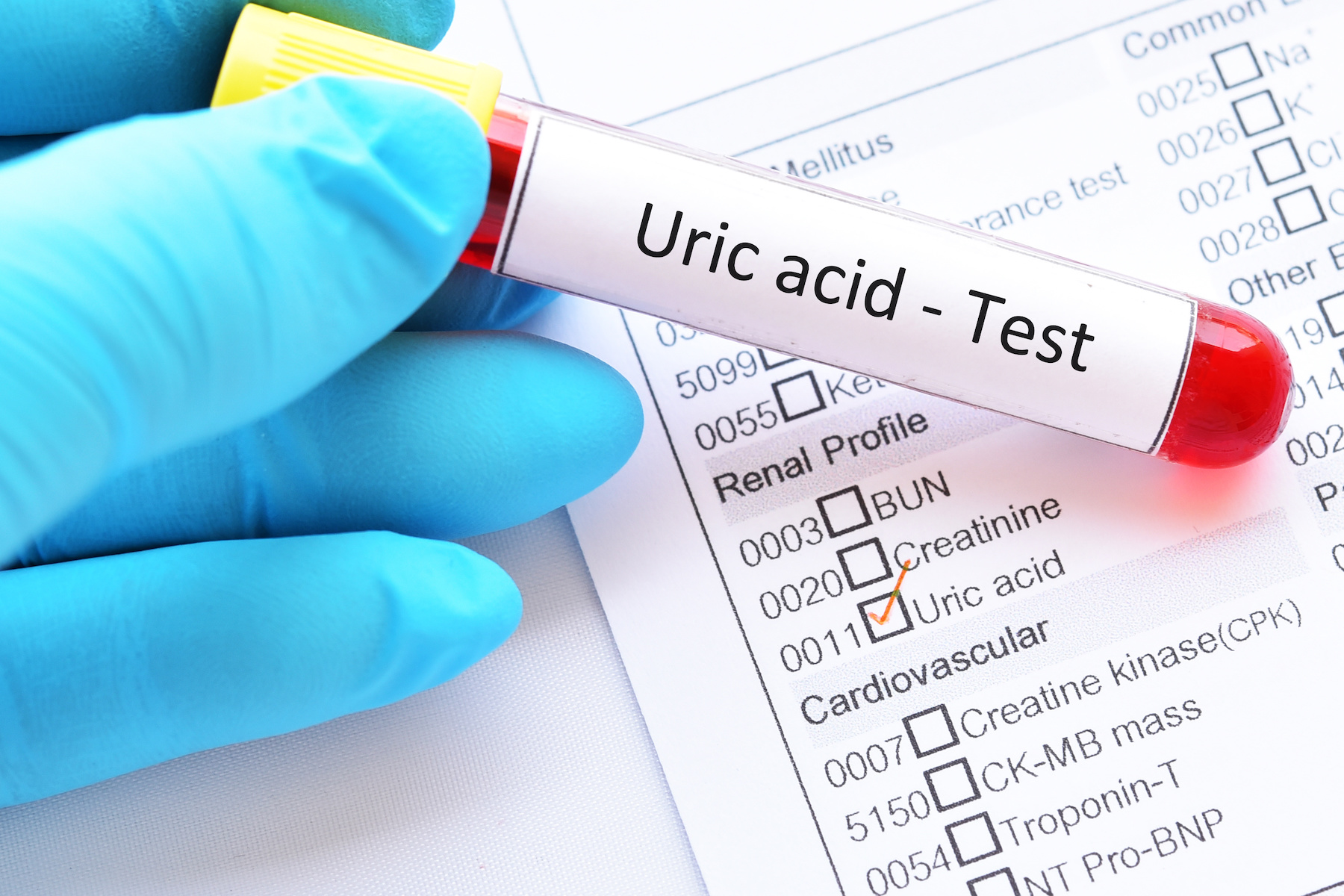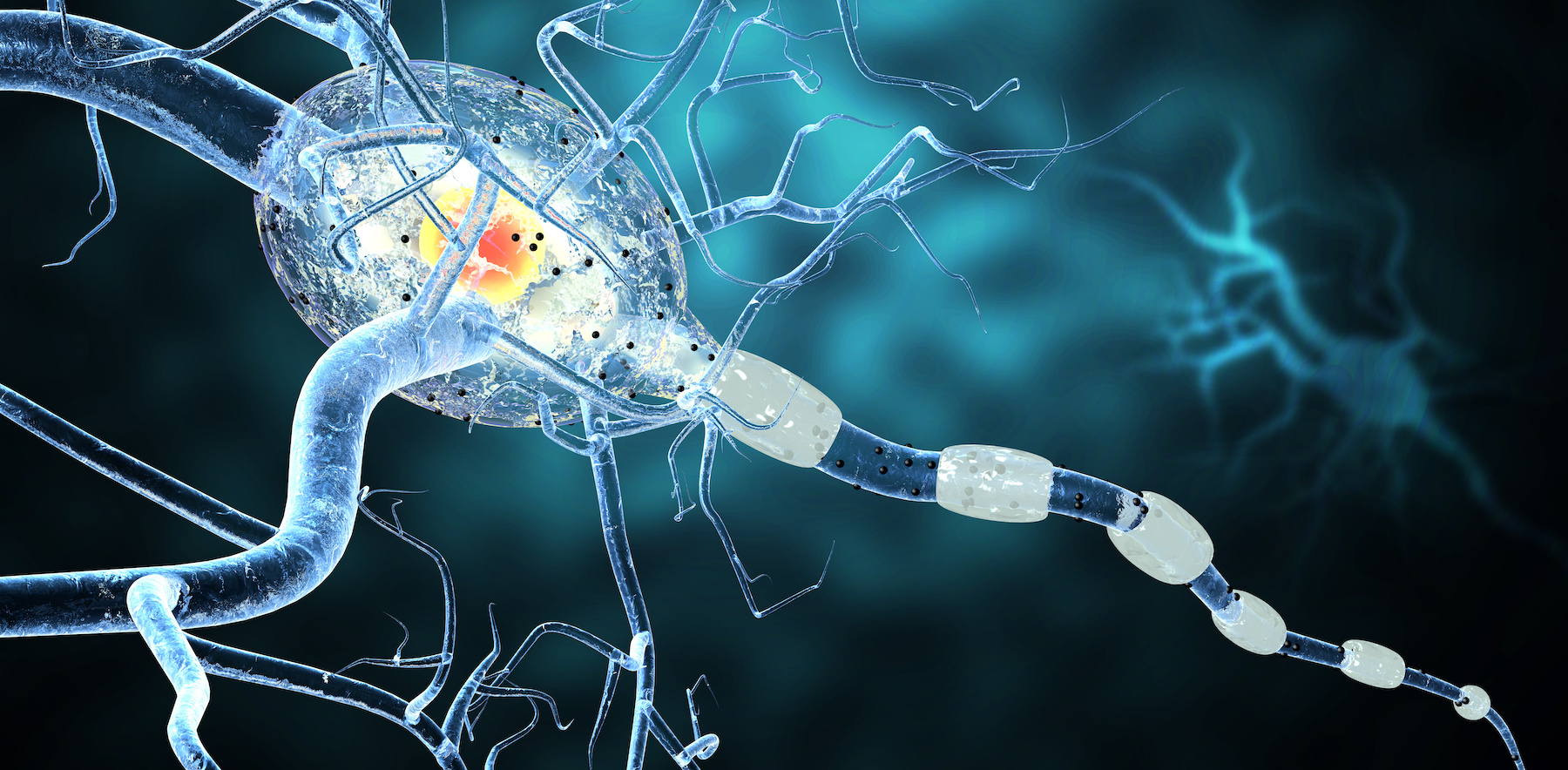

What do you think about when you hear “high uric acid”? Sounds like medical mumbo-jumbo, right? But knowing if you have high uric acid is important. In recent studies, high uric acid is shown to be a risk factor for serious chronic diseases such as coronary artery disease and hypertension. Let’s look a bit closer at uric acid and how it impacts health.
What Is Uric Acid?
Uric acid is a byproduct in the breakdown of purines, which form in the body and are also found in certain foods. Uric acid moves through the bloodstream to your kidneys and gets filtered out. The excess leaves the body through urine.
Sometimes, uric acid levels remain high in the body. This happens when the kidneys don’t eliminate enough through urine. While some people have no symptoms with high uric acid levels, it can wreak havoc on others. Kidney stones can develop, gout flares can occur, and metabolic consequences can begin.
Causes of High Uric Acid
There are a variety of different causes of high uric acid.
Some causes include:
- Being overweight
- Diabetes
- High alcohol intake
- Certain medications, such as diuretics or immune-suppressing drugs
- Genetics
- Eating a high purine-rich diet, including liver, anchovies, sardines, game meat, and gravy
There are often a variety of causes contributing to high uric acid levels, so a trained functional medicine provider can help get to the root cause.
What Happens When You Have High Uric Acid Levels
High uric acid levels don’t always need medication to lower it. But, it is cause for concern if you have a gout attack, kidney stones, or certain metabolic conditions.
Gout is an inflammatory arthritis. It generally affects only one joint at a time. Symptoms of a gout attack include joint stiffness and pain, swelling, and mild fever. While symptoms can flare, there are also times of symptom remission.
In addition to kidney stones or gout attacks, recent studies show high uric acid plays a central role in metabolic syndrome.
Uric Acid and Cardiometabolic Disease
New research shows that high uric acid levels play a central role in cardiometabolic diseases. These include high blood pressure, diabetes, chronic kidney disease, and heart failure. Interestingly enough, one study found uric acid levels above 7 mg/dL increase your risk for cardiovascular disease by 39%. It’s also been found to be related to increased risk of mortality from stroke.
As a general guideline, uric acid levels above 5.5 mg/dL is considered a risk factor for cardiometabolic disease.
While a noticeable relationship between high levels of uric acid and cardiometabolic disease is present, more research is needed to discover if high uric acid causes- or significantly contributes to – the development of cardiometabolic disease. Until then, treating high uric acid levels as a risk factor for metabolic disease keeps this little-known player at the forefront of your health.
High Uric Acid Treatment
An anti-inflammatory and low purine diet, exercising, and taking certain herbs and supplements can help manage uric acid levels.
Anti-inflammatory and low purine diet
Eating an anti-inflammatory diet is one of the best things for your health. It also helps control uric acid levels. Avoid common allergens such as wheat, corn, dairy, and preservatives. Focus on antioxidant-rich foods like fruits and vegetables, high fiber foods, and lean meats or beans for protein. Low fructose fruits are also important, including berries, oranges, and cherries.
Avoiding high purine foods like organ meat, processed meats, and certain seafood like anchovies is also important. Instead, focus on eating low-purine food. Some low purine foods to include in your diet include:
- Cherries
- Coffee
- Eggs
- Nuts
In addition, stay hydrated with water and avoid alcohol.
Exercise
Physical activity has many health benefits. New studies show that it even helps lower uric acid levels in your body over time. While it plays a role in preventative health, exercise also supports disease management and helps decrease high uric acid levels. This makes consistent exercise even more important. Aim to exercise at least 5 days a week for 30 minutes or more (or a total of 150 min per week of moderate intensity exercise).
Supplements
Targeted supplementation also helps control high uric acid levels. Here are some common supplements that can help.
- Multivitamin such as Multi Nutrients, especially one that includes trace minerals such as zinc, selenium, and magnesium.
- Probiotics like Complete Probiotic that include lactobacillus, which helps improve gastrointestinal flora and immune health.
- Omega-3 fatty acids like Mega Omega improve overall health with their anti-inflammatory properties.
- N-acetyl cysteine, sometimes referred to as NAC, has antioxidant properties to support health.
Herbs and Foods
Certain herbs are helpful in minimizing inflammation and controlling pain associated with high uric acid. Let’s look at each.
- Green tea, an antioxidant with immune boosting benefits
- Devil’s claw, supports the body in decreasing inflammation and pain management
- Cat’s claw has anti-inflammatory properties and supports immune function
- Cranberry supports kidney health
- Bromelain has anti-inflammatory benefits and supports pain management
- Turmeric, and/or curcumin, like Curcumin Max, has anti-inflammatory and immune supporting effects
Support Your Health With Functional Medicine!
High uric acid might not be high on the list when you see your doctor for a check-up. But, knowing your uric acid level is valuable information about your health. Through routine blood work, we can check your uric acid level and discuss sustainable health changes to make a lasting difference.
Here at Arizona Wellness Medicine, we have a team of highly trained functional medicine providers to create a personalized plan for you so you can feel your best. Schedule an appointment here.
Resources:
Mayo Clinic – Uric Acid Definition
Mayo Clinic – Uric Acid Causes
Share:
Dr. Emily Parke
Related Posts

What Is Sleep Apnea? Symptoms, Risks, and Treatment Options
Sleep apnea occurs when breathing repeatedly stops and starts throughout the night. Learn the symptoms, risks, and sleep apnea treatment options.

Estrogen Metabolism: How It Works, Why It Matters, and Supplements for Healthy Estrogen Metabolism
Estrogen metabolism is vital to estrogen regulation. Learn how it works and how the DUTCH test can provide insight into hormonal imbalance.

The Paleo Diet Versus the Autoimmune Paleo Diet: Differences and Benefits
Learn the difference between the paleo and the autoimmune paleo diet, including food lists, what foods to avoid, and all the health benefits!

A Complete View of Multiple Sclerosis: Symptoms, Diagnosis, and Functional Medicine Treatment Options
Get a complete view of multiple sclerosis, including common symptoms and treatment options, including nutrition and supplementation.
